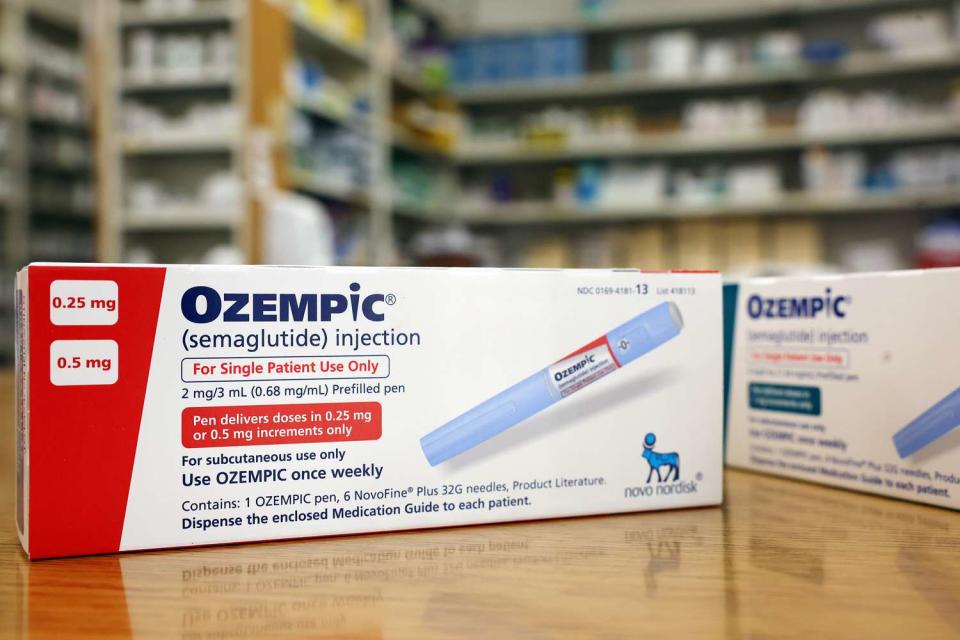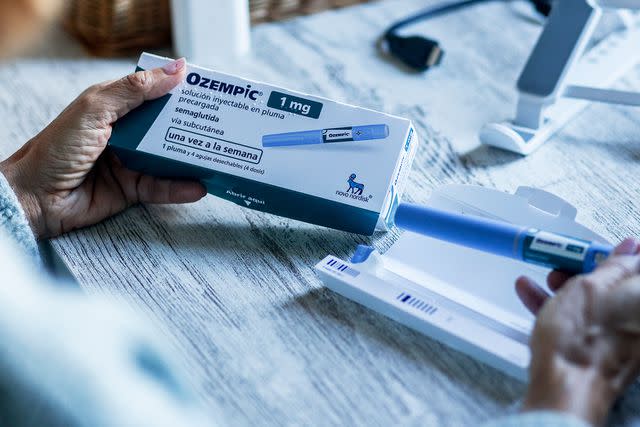Prescriptions for Ozempic and Similar Drugs Up 600% in Teens and Young Adults
More than 60,000 teens and young adults are being prescribed Ozempic and similar medications monthly, as experts point to increasing rates of childhood obesity

Mario Tama/Getty
Stock image of Ozempic.The number of young adults and adolescents being prescribed Ozempic and similar drugs has skyrocketed, rising 600% in a three-year period.
A new report, published in the Journal of the American Medical Association, looked at the frequency of prescriptions being given to adolescents (defined as 12-17 years old) and young adults (18-25 years old).
In 2020, 8,700 prescriptions were being written a month for patients in that age group. But by 2023, more than 60,000 adolescents and young adults were being prescribed these medications per month.
Ozempic — prescription medication for type 2 diabetes — and Wegovy — prescription medication for clinical obesity — are brand names for semaglutide, a GLP-1 receptor agonist which works in the brain to impact satiety. Taken once a week by injection in the thigh, stomach or arm, the medications have gained popularity in and out of Hollywood for weight loss.

Michael Siluk/UCG/Universal Images Group via Getty Images
Stock image of Wegovy.Childhood obesity has reached “epidemic levels” in the United States, the National Library of Medicine says, and the U.S. Centers for Disease Control estimates that nearly 20% of American children (aged 2–19 years) have obesity.
And according to the CDC, obesity puts children at risk for high blood pressure and high cholesterol, type 2 diabetes, and breathing problems (like asthma and sleep apnea).
The rates of type 2 diabetes “in the 10‐ to 19‐year‐old population has doubled over the past two decades,” the National Library of Medicine says.
Never miss a story — sign up for PEOPLE's free daily newsletter to stay up-to-date on the best of what PEOPLE has to offer, from juicy celebrity news to compelling human interest stories.
“What it’s suggesting is that it’s one of the tools in the toolbox and there are more providers prescribing this medication for the population,” Dr. Joyce Lee, a University of Michigan pediatrician and diabetes expert, told the Associated Press about her research.
However, as the National Library of Medicine notes, more action is needed to curb the childhood obesity epidemic — and keep it from extending into young adulthood.

Ricardo Rubio/Europa Press via Getty
Stock image of Ozempic.“The combination of diet, exercise, and physiological and psychological factors are all important factors in the control and prevention of childhood obesity,” the research notes, adding that it's important to continue “educating the child and family and encouraging appropriate diet and exercise from a young age through adulthood.”
The research also says efforts need to be made to “prevent…the child from continuing unhealthy habits and obesity into adulthood.”
Related: People Who Are Genetically Prone to Obesity Need to Work Out Harder to Avoid Weight Gain
And while GLP-1 inhibitors may be helpful, they’re also meant to be taken long-term, something Lee told the AP needs to be considered when prescribing them for a younger age group.
“We really need to think about the long-term safety and effectiveness of these medications for this population,” she said.
For more People news, make sure to sign up for our newsletter!
Read the original article on People.


